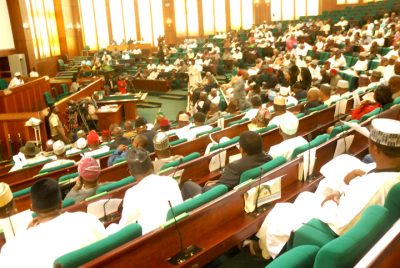The House of Representatives, on Wednesday, urged the Nigeria Communications Commission (NCC) to synergise with telecommunications operators to provide telecom services for rural populace across the country.
The House also urged the Federal Government to extend the national electricity grid to every part of the country to reduce infrastructure investment costs incurred by telecom operators in providing services to rural communities.
The resolutions were sequel to the adoption of a motion titled “Non Availability of Telecommunications Services in More than 200 Rural Communities Spread Across the Six Geopolitical Zones in Nigeria”, sponsored by Rep. Joseph Edionwele.
Moving the motion, Edionwele expressed concern that Nigerians in rural areas were yet to enjoy the benefits of liberalising the telecommunication sector.
“About 15 years ago, the Federal Government liberalised the telecommunications sector which opened a flood gate of investments in it.
“The liberalisation was equivalent to a telecommunications revolution which transformed the way people do business, communicate and live their lives.
“But ironically, most Nigerians who live in the rural areas have not been part of this revolution as they have remained marginalised.
He said that the Federal Government recently identified over 207 subsidy clusters across the six geopolitical zones of the country where telecoms services were not available.
According to him, investigation showed that over 36.8 million Nigerians are completely cut off from the super highway of the telecommunications revolution that swept across the country like a hurricane.
The lawmaker stressed that provision of telecommunication service to the rural communities would enhance exploitation of the economic potentials of the communities and improve their standard of living.
The House, therefore, mandated the Committees on Telecommunications and Power to ensure adherence and report back within eight weeks for further legislative action. (NAN)


